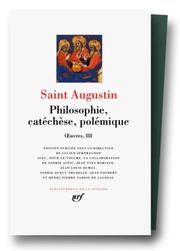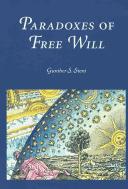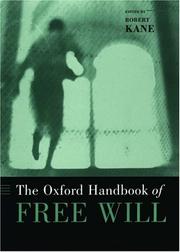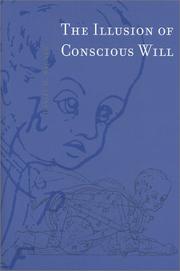| Listing 1 - 6 of 6 |
Sort by
|
Book
ISBN: 9173464422 Year: 2002 Publisher: Göteborg Acta universitatis Gothoburgensis
Abstract | Keywords | Export | Availability | Bookmark
 Loading...
Loading...Choose an application
- Reference Manager
- EndNote
- RefWorks (Direct export to RefWorks)

ISBN: 2070115135 9782070115136 Year: 2002 Volume: 483 Publisher: Paris Gallimard
Abstract | Keywords | Export | Availability | Bookmark
 Loading...
Loading...Choose an application
- Reference Manager
- EndNote
- RefWorks (Direct export to RefWorks)
Free will and determinism --- Catechetics --- Catechisms --- Philosophy, Ancient --- Theology --- Libre arbitre et déterminisme --- Catéchétique --- Catéchismes --- Philosophie ancienne --- Théologie --- History --- Early works to 1800 --- Histoire --- Ouvrages avant 1800 --- Christian theology --- Theology, Christian --- Christianity --- Religion --- Libre arbitre et déterminisme --- Catéchétique --- Catéchismes --- Théologie --- Theology - Early works to 1800

ISSN: 00659746 ISBN: 0871699265 9780871699268 Year: 2002 Volume: 92/6 Publisher: Philadelphia (Pa.) American philosophical society
Abstract | Keywords | Export | Availability | Bookmark
 Loading...
Loading...Choose an application
- Reference Manager
- EndNote
- RefWorks (Direct export to RefWorks)
Free will and determinism. --- Free will and determinism --- Compatibilism --- Determinism and free will --- Determinism and indeterminism --- Free agency --- Freedom and determinism --- Freedom of the will --- Indeterminism --- Liberty of the will --- Determinism (Philosophy) --- Libre arbitre et determinisme

ISBN: 0195133366 9780195133363 Year: 2002 Publisher: Oxford Oxford university press
Abstract | Keywords | Export | Availability | Bookmark
 Loading...
Loading...Choose an application
- Reference Manager
- EndNote
- RefWorks (Direct export to RefWorks)
Philosophical anthropology --- Affective and dynamic functions --- Free will and determinism. --- Philosophy, Modern --- Ethics, Modern --- Libre arbitre et déterminisme --- Philosophie --- Morale --- -Free will and determinism --- -Modern philosophy --- Compatibilism --- Determinism and free will --- Determinism and indeterminism --- Free agency --- Freedom and determinism --- Freedom of the will --- Indeterminism --- Liberty of the will --- Determinism (Philosophy) --- Modern ethics --- -Ethics, Modern --- Libre arbitre et déterminisme --- Free will and determinism --- Philosophy, Modern - 20th century. --- Ethics, Modern - 20th century.

ISBN: 3787314148 9783787314140 Year: 2002 Volume: 14 Publisher: Hamburg Meiner
Abstract | Keywords | Export | Availability | Bookmark
 Loading...
Loading...Choose an application
- Reference Manager
- EndNote
- RefWorks (Direct export to RefWorks)
History of philosophy --- Philosophy and psychology of culture --- anno 1400-1499 --- anno 1500-1599 --- Philosophy, Renaissance --- Individualism --- Cosmology --- Free will and determinism --- Knowledge, Theory of --- Cambridge Platonists --- Philosophie de la Renaissance --- Individualisme --- Cosmologie --- Libre arbitre et déterminisme --- Théorie de la connaissance --- Platoniciens de Cambridge --- Philosophy, Renaissance. --- Individualism. --- Free will and determinism. --- Knowledge, Theory of. --- Cambridge Platonists. --- Libre arbitre et déterminisme --- Théorie de la connaissance

ISBN: 0262232227 0262731622 0585442738 0262285894 0262290553 9780262285896 9780585442730 9780262232227 9780262731621 Year: 2002 Publisher: Cambridge, MA : The MIT Press,
Abstract | Keywords | Export | Availability | Bookmark
 Loading...
Loading...Choose an application
- Reference Manager
- EndNote
- RefWorks (Direct export to RefWorks)
A novel contribution to the age-old debate about free will versus determinism.Do we consciously cause our actions, or do they happen to us? Philosophers, psychologists, neuroscientists, theologians, and lawyers have long debated the existence of free will versus determinism. In this book Daniel Wegner offers a novel understanding of the issue. Like actions, he argues, the feeling of conscious will is created by the mind and brain. Yet if psychological and neural mechanisms are responsible for all human behavior, how could we have conscious will? The feeling of conscious will, Wegner shows, helps us to appreciate and remember our authorship of the things our minds and bodies do. Yes, we feel that we consciously will our actions, Wegner says, but at the same time, our actions happen to us. Although conscious will is an illusion, it serves as a guide to understanding ourselves and to developing a sense of responsibility and morality.Approaching conscious will as a topic of psychological study, Wegner examines the issue from a variety of angles. He looks at illusions of the will--those cases where people feel that they are willing an act that they are not doing or, conversely, are not willing an act that they in fact are doing. He explores conscious will in hypnosis, Ouija board spelling, automatic writing, and facilitated communication, as well as in such phenomena as spirit possession, dissociative identity disorder, and trance channeling. The result is a book that sidesteps endless debates to focus, more fruitfully, on the impact on our lives of the illusion of conscious will.
Affective and dynamic functions --- Will. --- Free will and determinism. --- #KVHB:Vrije wil --- Free will and determinism --- Will --- Cetanā --- Conation --- Volition --- Ethics --- Philosophy --- Psychology --- Self --- Compatibilism --- Determinism and free will --- Determinism and indeterminism --- Free agency --- Freedom and determinism --- Freedom of the will --- Indeterminism --- Liberty of the will --- Determinism (Philosophy) --- COGNITIVE SCIENCES/Psychology/Cognitive Psychology --- COGNITIVE SCIENCES/General --- Volonté. --- Libre arbitre.
| Listing 1 - 6 of 6 |
Sort by
|

 Search
Search Feedback
Feedback About
About Help
Help News
News